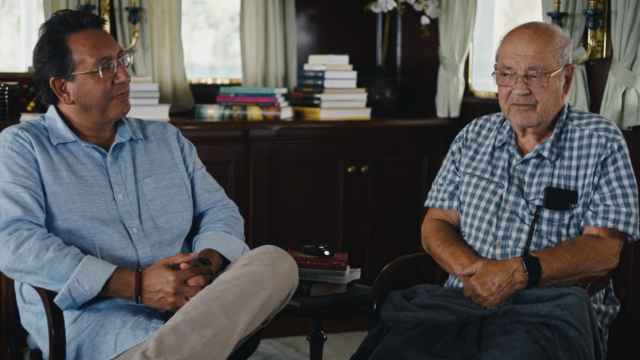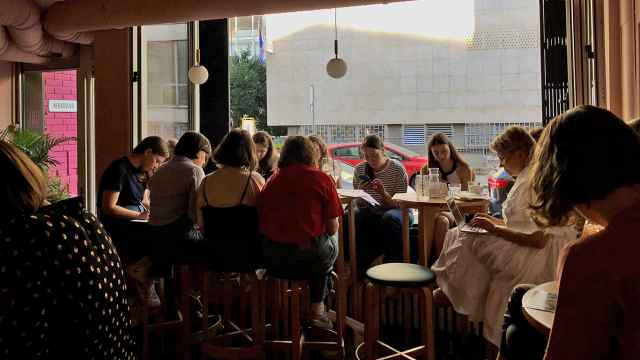Underfunded and lacking encouragement, Russia’s young designers say they are struggling to break into the country’s fashion circles, which are still ruled by Soviet-era big wigs.
“Fabrics are unavailable, we get minimal material to work with, and young designers don’t have money,” said Aminat Kaayeva, a 26-year-old native of Russia’s troubled Chechnya region.
At a recent fashion show in Moscow, Kaayeva showed off ankle-length dresses inspired by Middle Eastern designs as part of a show dedicated to eight young designers.
“It’s no surprise that the level of our fashion weeks is below the European bar,” she said.
Though Russia has access to Western fabrics, ideas and inspiration made available since the fall of the Soviet Union 20 years ago, its gurus lament a stagnant industry.
Top designers like Slava Zaitsev, a 73-year-old Soviet icon, have complained that the government does not give enough funding to new designers, especially to the young.
But some purposely avoid the lure of the West, despite scholarships and more-promising audiences.
Female designer-duo — Moscow students Anastasia Seregina and Tatyana Reznik — have taken inspiration from Russia for their latest collection of winter sportswear.
White, one-piece ski suits heavily featured in their show. They said they wanted to evoke a snow leopard, one of the recently chosen mascots for Russia’s 2014 Winter Olympics.
“We don’t expect to sell the collection; that would be aiming too high,” Seregina sighed. “But if we could at least insert a new trend in winter sport clothes; that would be good,” she said.
Both Reznik and Seregina said that regardless of the lack of funding given to Russian fashion, they want to design locally.
“They [already] have plenty of people doing this abroad, while Russia has great potential. We hope the road for young designers in Russia will widen out soon,” Reznik said.
A Message from The Moscow Times:
Dear readers,
We are facing unprecedented challenges. Russia's Prosecutor General's Office has designated The Moscow Times as an "undesirable" organization, criminalizing our work and putting our staff at risk of prosecution. This follows our earlier unjust labeling as a "foreign agent."
These actions are direct attempts to silence independent journalism in Russia. The authorities claim our work "discredits the decisions of the Russian leadership." We see things differently: we strive to provide accurate, unbiased reporting on Russia.
We, the journalists of The Moscow Times, refuse to be silenced. But to continue our work, we need your help.
Your support, no matter how small, makes a world of difference. If you can, please support us monthly starting from just $2. It's quick to set up, and every contribution makes a significant impact.
By supporting The Moscow Times, you're defending open, independent journalism in the face of repression. Thank you for standing with us.
Remind me later.





